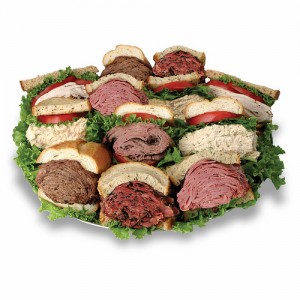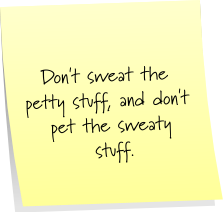1. Put yourself first from time to time. I’m not saying you should abandon your children in a deserted warehouse while you go off on a Mediterranean cruise. I’m just saying that sometimes it’s OK to take yourself out for coffee or go for a run – whatever it is that you like – even if it means <gasp> making your kids wait for whatever they want.
2. Stop and smell the roses. I mean that literally – if you see something beautiful, slow down and give yourself time to appreciate it. There is a small patch of tulips about three minutes’ walk from my house. Every Spring, my heart is lifted by the sight of them starting to bloom. Even on my worst days, when I feel horribly depressed, looking at the tulips has the power to uplift me.
3. Exercise, even if it just means going for a walk around the block. When you are in the depths of desperation, exercising might be the last thing you want to do, but it is almost certain to help. There are physiological reasons why physical motion helps people who struggle with mental illness.
4. Start your day with an accomplishment. For me, this means going for a run. For someone else, it might be finding a recipe for dinner or putting on a load of laundry. It doesn’t have to be big: for a period of time last summer, the simple act of brushing my teeth counted as an accomplishment.
5. See a therapist. Many people see this as a sign of shame or weakness, but honestly, it’s fine. Life sometimes throws things at us that we cannot and should not cope with alone. I’ve been seeing my therapist for almost four years now, and my only complaint is that I took so long to take that step.
6. Be aware of your self-talk. People who struggle with depression or anxiety have very strong powers of persuasion, and they persuade themselves to believe all of the wrong things. Negative self-talk can send a person into a downward spiral faster than the speed of light.
7. Recognize that sometimes it’s OK to fall apart. You don’t have to be strong and composed at all times. If life is overwhelming you, take yourself to a safe place and cry big, fat ugly tears.
8. Get enough sleep. This can be a tall order, since depression and anxiety seem to go hand-in-hand with insomnia. There are various strategies that can be used to help you relax. My therapist taught me the technique of tensing and relaxing all of my muscles, one body part at a time. That works quite well for me. Someone else might prefer visualization techniques, reading or listening to relaxing music. The point is that if you struggle with sleep, you need to try and find something that will work for you. The world is a frightening place: it’s even scarier when seen through the fog of sleeplessness.
9. Eat properly. Again, this means different things to different people, but you need to fuel yourself properly to function well both physically and mentally.
10. Know that mental illness is not a source of shame. It’s not something that you can just snap out of, it’s not your fault and it’s not something you should feel bad about. It’s an illness, just like any other illness, and it should be treated with the same respect. Recognizing that can help you come to a greater sense of acceptance for yourself.
This is an original post by Kirsten Doyle, written for Mental Health Blog Day.













